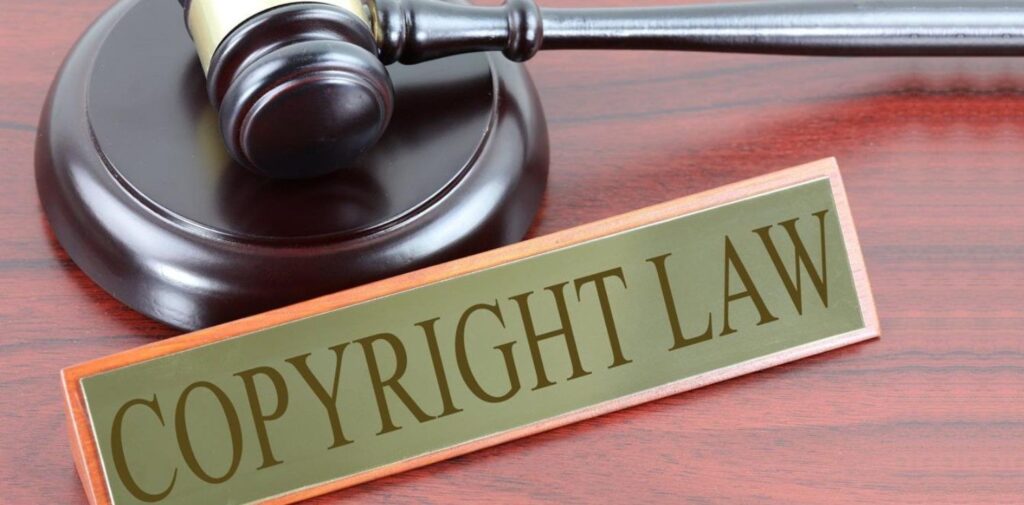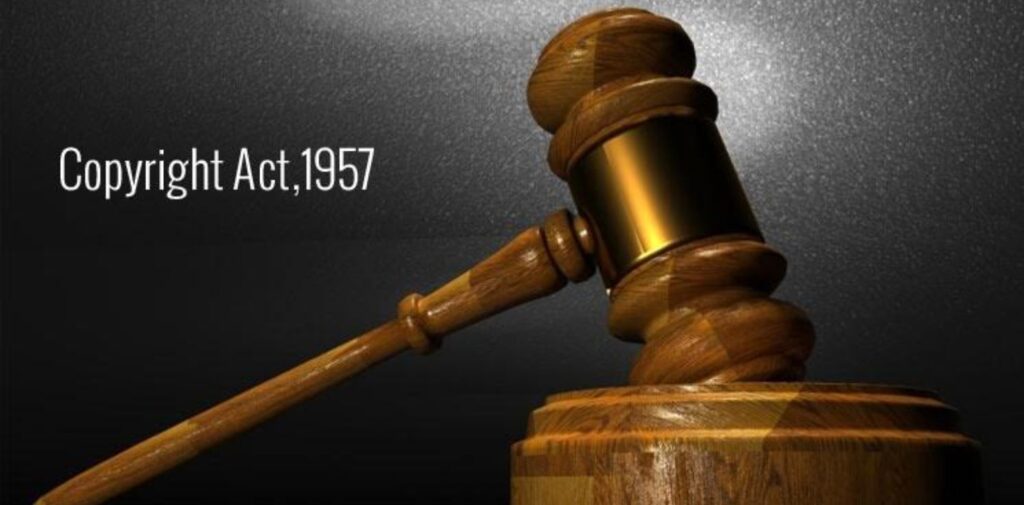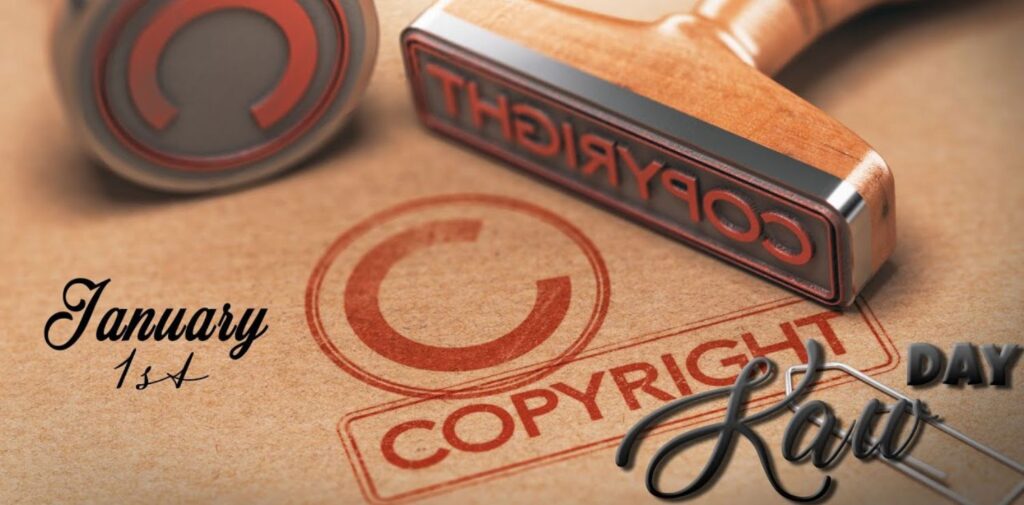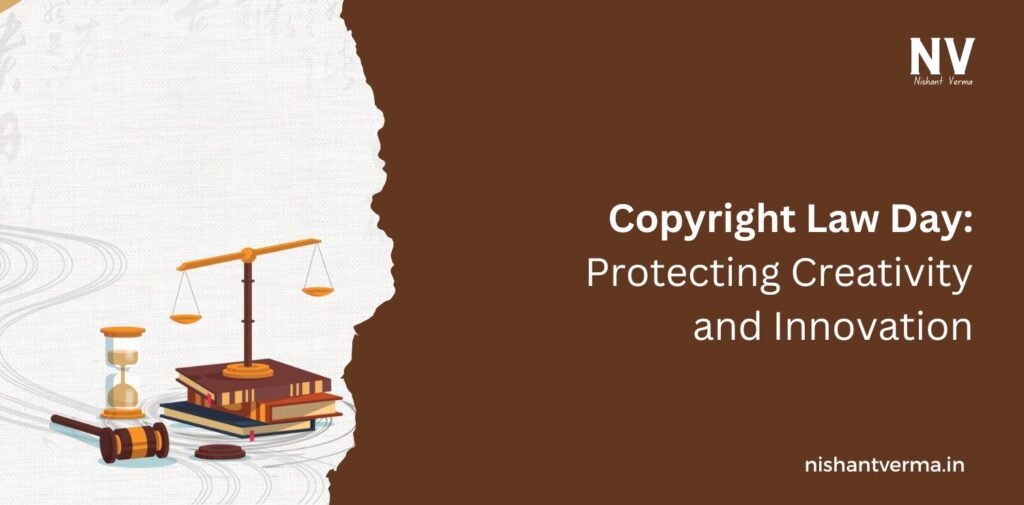(Day-1 January)
Every year, on January 1st, Copyright Law Day is observed around the world, including in India. This day serves as an important reminder of the need to protect the works of artists, writers, musicians, and creators from unauthorized use and infringement. In a country like India, where creativity is a core part of its cultural identity, Copyright Law Day brings attention to the legal frameworks that safeguard the hard work and intellectual property of individuals.
Whether it’s the latest Bollywood movie, a song by your favorite singer, a book that has touched your heart, or even a viral meme, the importance of copyright laws in protecting these creations cannot be overstated. But what exactly is copyright? Why does it matter, and how does it affect us in our daily lives? In this article, we will explore these questions and explain why Copyright Law Day is a significant observance in India.
What Is Copyright?
At its core, copyright is a legal term used to describe the rights that creators have over their original works. These works can include anything from music, films, books, and artwork, to software, photography, and even architecture. When a person creates something original, they automatically gain certain rights over how that creation is used, distributed, and reproduced.
In simpler terms, copyright is the protection given to the creators of original works to prevent others from using, copying, or selling their work without permission. For instance, if you write a novel, no one else can publish your novel or make money from it without your consent. Similarly, if you paint a picture, you have the right to stop anyone from reproducing your artwork and selling it.

Why Is Copyright Important?
Copyright laws are essential because they:
- Protect the Rights of Creators: Creators often spend a lot of time, effort, and resources developing their work. Copyright ensures that they have control over their creations and can profit from them. Without copyright protection, anyone could use someone else’s work without permission, causing significant financial and creative harm to the creator.
- Encourage Creativity and Innovation: When creators know that their works are protected by law, they are more likely to continue creating. The assurance that their intellectual property will not be stolen or misused encourages more people to innovate and contribute to various fields, whether in literature, music, film, technology, or art.
- Foster Cultural Growth: Copyright protection supports the cultural industries, like cinema, literature, and music, which are essential parts of India’s identity. By protecting the works of authors, filmmakers, and artists, copyright laws ensure that Indian culture can flourish and be shared with the world.
- Promote Economic Growth: The creative industries are a significant contributor to India’s economy. From film production to software development, intellectual property plays a crucial role in creating jobs, generating revenue, and promoting economic development. Without copyright protection, these industries would suffer losses, and the economy would be impacted.
Copyright Law in India
India has its own copyright law, which is governed by the Copyright Act, 1957. The law was introduced to provide creators with exclusive rights over their original works and to prevent unauthorized copying or reproduction. Over the years, the Copyright Act has undergone several amendments to keep up with the changes in technology and the global digital landscape.
The most significant amendment came in 2012, when India brought its copyright law in line with international standards by adhering to the Berne Convention for the Protection of Literary and Artistic Works, an international treaty that mandates copyright protection in member countries. This means that Indian creators now enjoy the same level of protection for their works as creators in other countries, and foreign creators also benefit from copyright protection in India.

Types of Works Protected by Copyright
Copyright covers a wide range of creative works. Some of the major categories of works protected under Indian copyright law include:
- Literary Works: This includes books, articles, poems, and computer software. Authors of books or articles automatically gain copyright protection over their writings.
- Dramatic Works: Plays, choreographed dances, and scripts fall under this category. Copyright ensures that the creators of these works can control how they are performed and reproduced.
- Musical Works: Songs, compositions, and musical arrangements are protected under copyright laws. The creators of these works, including lyricists, composers, and arrangers, are entitled to royalties and control over how their music is used.
- Artistic Works: Paintings, drawings, sculptures, and architectural designs are covered under copyright. Artists can stop others from reproducing or selling their works without their permission.
- Cinematographic Films and Sound Recordings: Filmmakers, including directors, producers, and musicians, benefit from copyright protection for films, television shows, and recorded music.
- Software Programs: With the rise of technology, software development has become one of the fastest-growing sectors. Copyright protection ensures that the creators of software can stop others from copying their code or using their software without authorization.
How Does Copyright Protect Creators?
Under Indian copyright law, the rights granted to creators are of two types:
- Economic Rights: These rights allow the creator to control how their work is reproduced, distributed, performed, and sold. Creators can license or sell these rights to others, often receiving financial compensation.
- Moral Rights: Moral rights refer to the personal rights of the creator to protect the integrity of their work. This includes the right to be recognized as the creator (right of attribution) and the right to prevent any distortion or modification of their work that could harm their reputation (right to object to derogatory treatment).
Once a work is created, the creator automatically holds the copyright, but to fully enjoy the benefits of this protection, they may need to register the work with the Copyright Office in India. This registration provides evidence of ownership and strengthens the creator’s ability to enforce their rights in case of infringement.
Common Copyright Issues in India
- Piracy and Plagiarism: Piracy, the illegal copying and distribution of creative works, is a significant issue in India. Whether it’s movies, music, or books, pirated versions of works are often sold for a fraction of the original price. This not only hurts the creators but also impacts the economy.
- Online Infringement: With the rise of the internet, copyright infringement has shifted online. Platforms like YouTube, social media, and file-sharing websites make it easier for people to share copyrighted material without permission. While these platforms are taking steps to address copyright issues, infringement remains a challenge.
- Lack of Awareness: A large section of the Indian population is still unaware of copyright laws and their importance. Many people unknowingly infringe copyright by copying works, using music in videos, or downloading pirated content. Awareness campaigns are necessary to educate the public about the significance of respecting intellectual property.

Celebrating Copyright Law Day
Copyright Law Day on January 1st is an opportunity for all of us—whether we are creators, consumers, or business owners—to reflect on the importance of copyright and the need to protect intellectual property. Here’s how we can celebrate and observe this day:
- Support Original Creators: As consumers, we can make a conscious effort to support original creators by buying authorized versions of their work, attending performances, and respecting their intellectual property.
- Spread Awareness: If you are a creator, use this day to educate others about copyright laws and the importance of protecting their works. Share information on social media or even organize workshops for local artists, writers, and filmmakers.
- Respect Copyright Laws: Whether you’re posting on social media, creating content for your blog, or running a business, make sure you are respecting copyright laws. Give credit to creators, obtain permission before using someone else’s work, and avoid using pirated material.
Conclusion
Copyright Law Day on January 1st is an important occasion to recognize the value of intellectual property and the need to protect it. In India, where creativity is integral to our culture, respecting copyright laws ensures that creators are rewarded for their hard work and that innovation continues to thrive. Whether you are a creator or a consumer, understanding and respecting copyright laws is essential for the growth of the creative industry and the protection of artistic expression. So, let’s take a moment this January 1st to honor and celebrate the creators who inspire us and the laws that protect their work.




